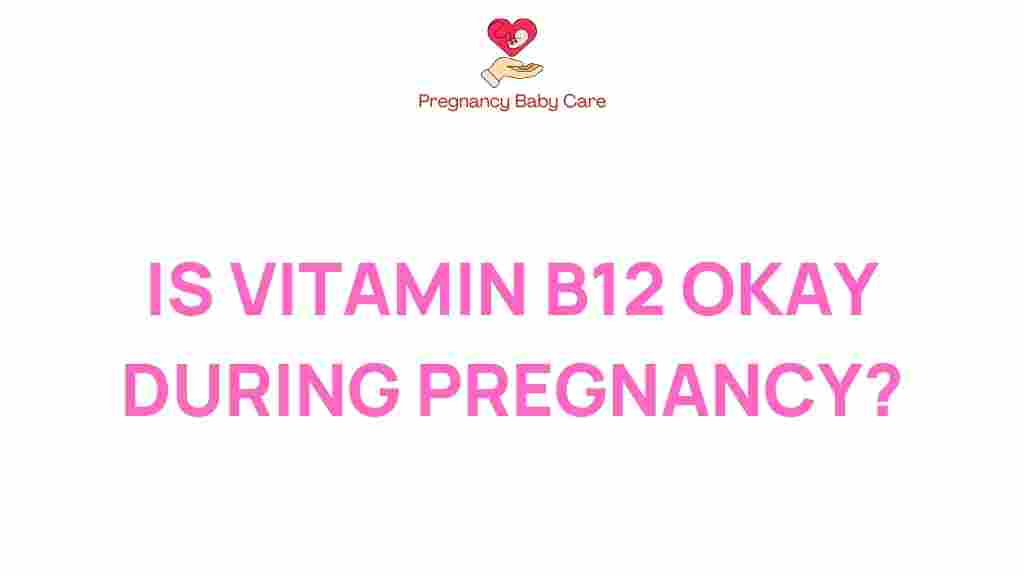Is Vitamin B12 Safe During Pregnancy?
Pregnancy is a crucial time for maternal health and fetal development, with nutrition playing a vital role. Among various nutrients that contribute to a healthy pregnancy, Vitamin B12 has garnered attention. This article aims to unravel the facts surrounding Vitamin B12, its safety during pregnancy, and its importance for both maternal and fetal health.
Understanding Vitamin B12
Vitamin B12, also known as cobalamin, is a water-soluble vitamin that is essential for several bodily functions, including:
- Red blood cell formation
- DNA synthesis
- Neurological function
Since the body cannot produce Vitamin B12, it must be obtained from dietary sources or supplements, making it particularly important for pregnant women to ensure they meet their dietary needs.
The Role of Vitamin B12 in Pregnancy
During pregnancy, the demand for various vitamins and minerals increases, including Vitamin B12. This vitamin is critical for:
- Supporting fetal brain development
- Preventing neural tube defects
- Maintaining maternal energy levels
Insufficient levels of Vitamin B12 during pregnancy can lead to various complications, making it essential for expectant mothers to monitor their intake closely.
Sources of Vitamin B12
To maintain adequate levels of Vitamin B12, pregnant women can incorporate the following sources into their diet:
- Animal products such as meat, fish, eggs, and dairy
- Fortified foods like cereals and plant-based milk
- Vitamin B12 supplements if dietary intake is insufficient
Safety of Vitamin B12 During Pregnancy
When considering the safety of Vitamin B12 during pregnancy, it is important to note that this vitamin is generally regarded as safe when consumed in recommended amounts. However, understanding the appropriate dosage and potential risks is crucial.
Recommended Daily Allowance
The Institute of Medicine recommends the following daily intake of Vitamin B12 during pregnancy:
- Pregnant teens (14-18 years): 2.6 micrograms
- Pregnant adults (19 years and older): 2.6 micrograms
Most women can achieve these levels through a balanced diet. However, those following a vegetarian or vegan diet may need to consider fortified foods or supplements to meet their nutritional needs.
Potential Risks of Excessive Intake
While Vitamin B12 is generally safe, excessive intake can lead to complications. Some potential risks include:
- Allergic reactions in rare cases
- Potential masking of Vitamin B12 deficiency symptoms if taken in high doses
Therefore, it is essential for pregnant women to consult healthcare providers before taking supplements to ensure they are meeting their dietary needs without exceeding safe limits.
Step-by-Step Guide to Ensuring Adequate Vitamin B12 Intake
To ensure adequate Vitamin B12 intake during pregnancy, follow these steps:
Step 1: Assess Your Diet
Evaluate your current dietary habits to determine if you are getting enough Vitamin B12. Consider keeping a food diary to track your intake of animal products and fortified foods.
Step 2: Consult with a Healthcare Provider
Discuss your dietary needs with a healthcare provider or a registered dietitian. They can help you determine if you need to adjust your diet or consider supplementation based on your individual needs.
Step 3: Choose Nutrient-Dense Foods
Incorporate Vitamin B12-rich foods into your diet, such as:
- Lean meats (beef, chicken)
- Fish (salmon, tuna)
- Dairy products (milk, yogurt, cheese)
- Eggs
- Fortified cereals and plant-based milk
Step 4: Monitor Your Levels
If you are concerned about your Vitamin B12 levels, ask your healthcare provider for a blood test to check your levels. This can provide insight into whether your dietary intake is sufficient.
Step 5: Consider Supplements if Necessary
If you have difficulty getting enough Vitamin B12 from food sources, your healthcare provider may recommend a supplement. Always follow their guidance on the appropriate dosage.
Troubleshooting Tips for Vitamin B12 Intake
If you encounter challenges in meeting your Vitamin B12 needs during pregnancy, consider the following troubleshooting tips:
1. Explore Vegetarian and Vegan Sources
If you follow a vegetarian or vegan diet, focus on fortified foods. Look for:
- Fortified plant-based milk (almond, soy, oat)
- Fortified breakfast cereals
- Nutritional yeast
2. Be Aware of Symptoms of Deficiency
Recognize the symptoms of Vitamin B12 deficiency, which may include:
- Fatigue
- Pale skin
- Nerve problems (tingling, numbness)
If you experience any of these symptoms, consult your healthcare provider promptly.
3. Stay Informed About Your Supplements
Not all supplements are created equal. Look for high-quality Vitamin B12 supplements that are specifically formulated for pregnant women. Read labels carefully and consult with your healthcare provider if you have questions.
Conclusion
Vitamin B12 is a crucial component of prenatal health and nutrition. Understanding its safety, dietary needs, and the role it plays in maternal and fetal health is essential for expectant mothers. While most women can meet their Vitamin B12 requirements through a balanced diet, some may need to consider fortified foods or supplements.
By following a structured approach to ensure adequate intake and consulting healthcare providers, pregnant women can effectively support their health and the healthy development of their babies. For further information on prenatal nutrition, check out this resource. For a deeper understanding of Vitamin B12 and its benefits, visit this link.
This article is in the category Pregnancy and created by PregnancyBabyCare Team
